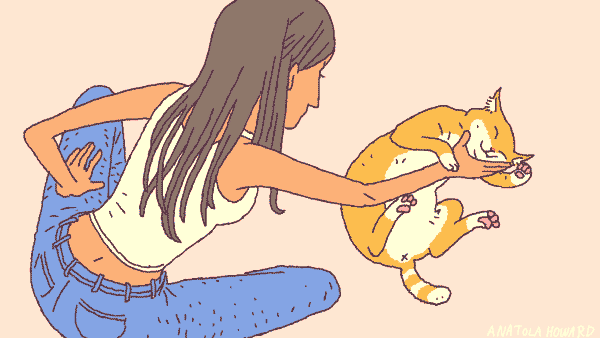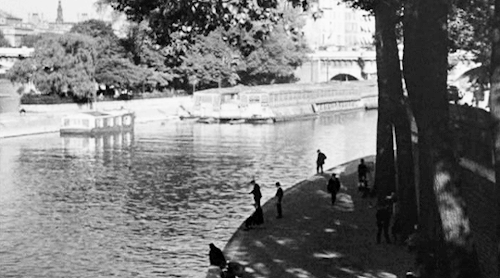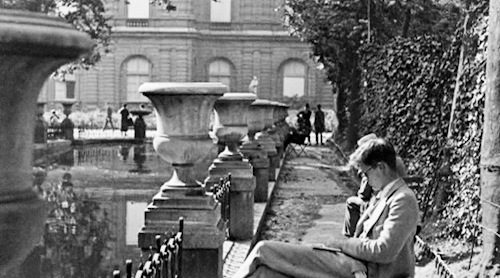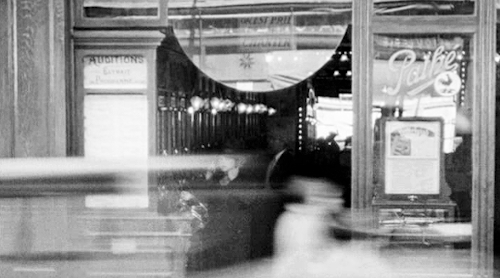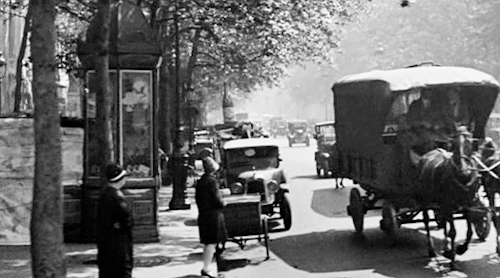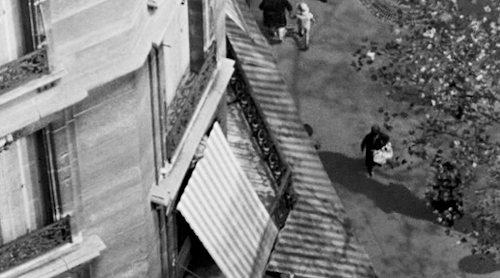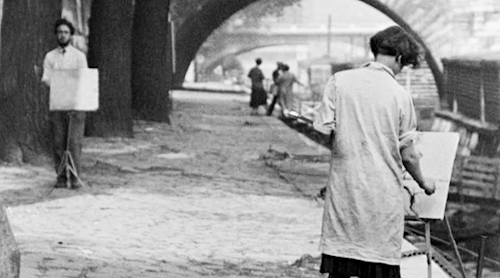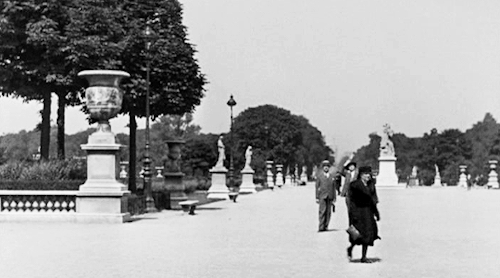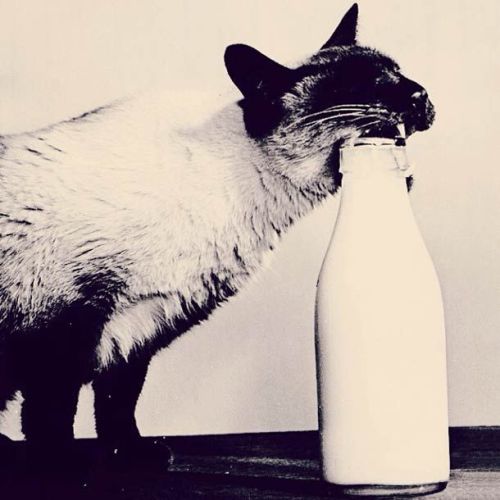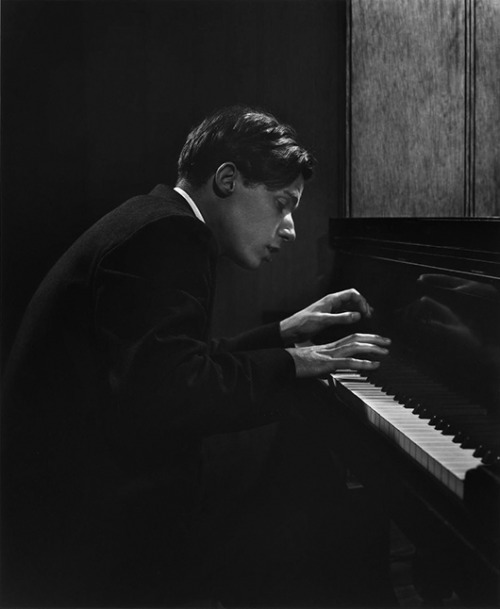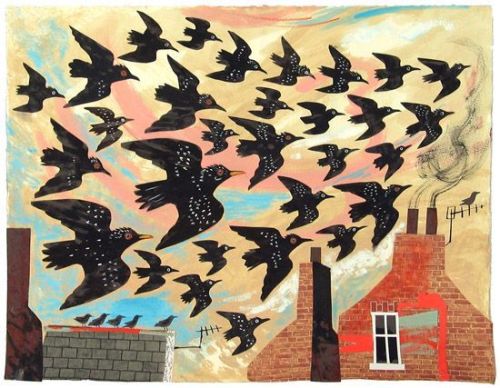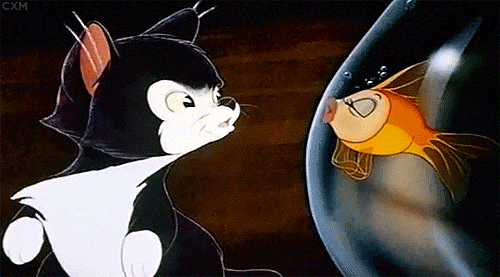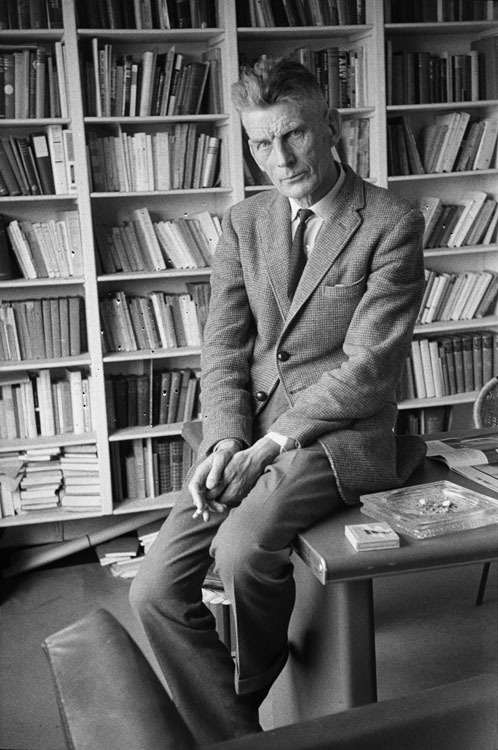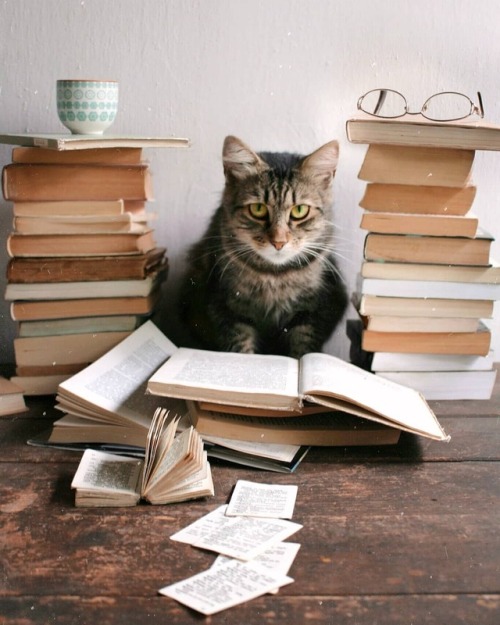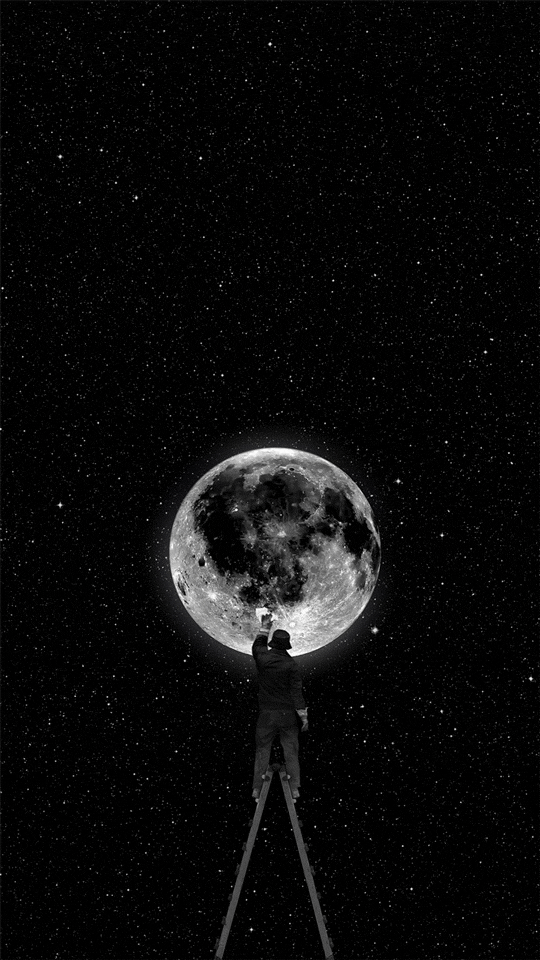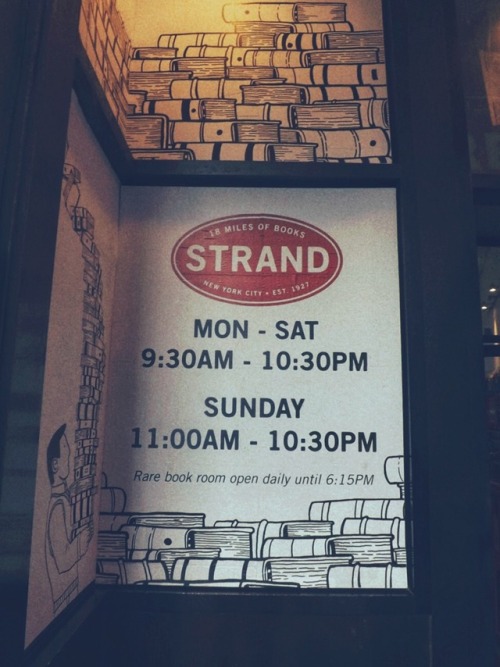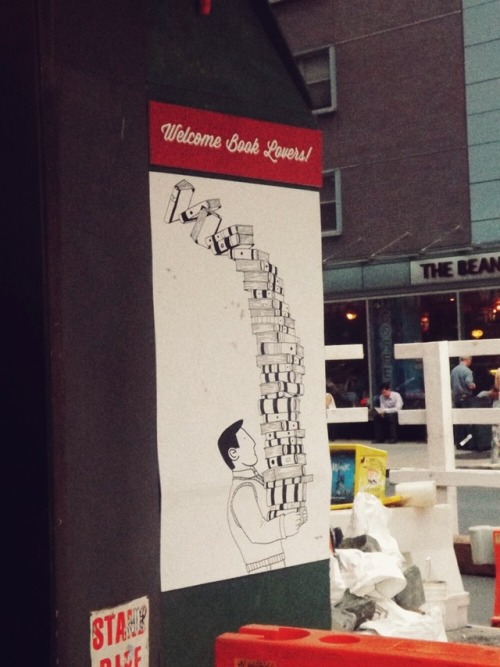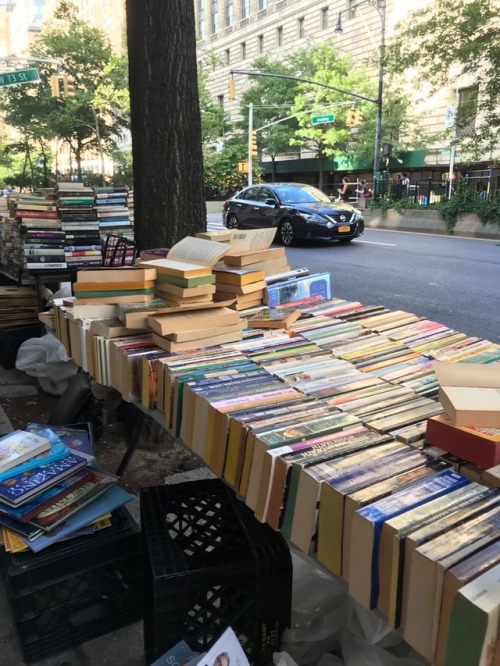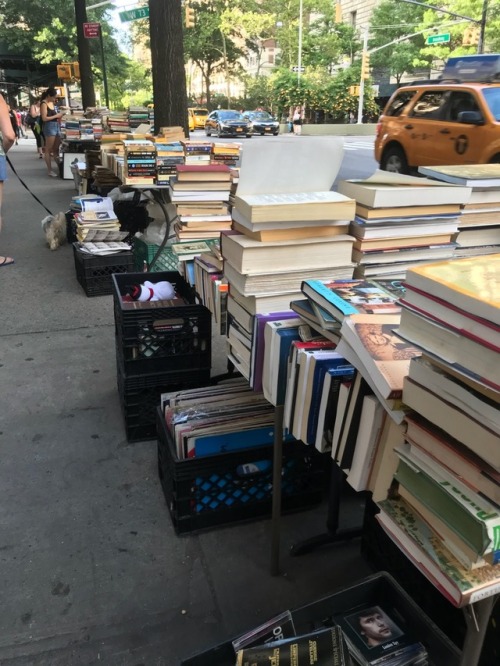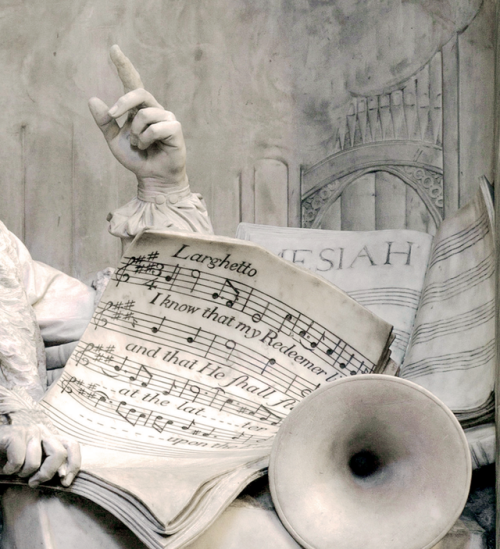venerdì 30 novembre 2018
"I am half afraid to hope for what I long for."
- Emily Dickinson, from a letter to Austin Dickinson wr. c. August 1851
(via violentwavesofemotion)
"My soul pours out without end, like melancholy water,"
- Éphraïm Mikhaël, from Poems; “Florimond,” written c. January 1879
(via violentwavesofemotion)
"Getting lost was not a matter of geography so much as identity, a passionate desire, even an urgent..."
- | Rebecca Solnit, A Field Guide To Getting Lost (via stoweboyd)
giovedì 29 novembre 2018
apezziperaverabbracciatolenuvole: “Lo strumento essenziale per la manipolazione della realtà è la...
apezziperaverabbracciatolenuvole:
“Lo strumento essenziale per la manipolazione della realtà è la manipolazione delle parole. Se siete in grado di controllare il significato delle parole, sarete in grado di controllare le persone che devono utilizzarle. George Orwell ha chiarito questo punto nel suo romanzo 1984. Ma un altro modo di controllare le menti delle persone è quello di controllare le loro percezioni. Se riuscite a far loro vedere il mondo nel modo in cui lo vedete voi, allora penseranno come voi. La comprensione fa seguito alla percezione. Come fare per indurli a vedere la realtà che voi vedete? Dopo tutto, si tratta di una realtà tra le tante. Le immagini ne sono l'elemento costitutivo: le figure. Ecco perché la capacità della Tv di influenzare la mentalità dei giovani è così spaventosamente vasta. Le parole e le figure vi appaiono sincronizzate, e si presenta la possibilità concreta di un controllo totale dello spettatore, specialmente se giovane. La visione televisiva è una specie di apprendimento in stato di sonno. L'elettroencefalogramma di una persona che guarda la Tv mostra che dopo mezz'ora il cervello si comporta come se nulla stesse accadendo: precipita in uno stato di torpore ipnotico ed emette onde alfa. Ciò succede in coincidenza con un movimento oculare ridotto. Inoltre, gran parte dell'informazione si presenta in forma grafica e raggiunge, pertanto, l'emisfero destro del cervello, invece di essere elaborata dal sinistro, dove è situata la personalità conscia. Recenti esperimenti indicano che buon parte di ciò che vediamo scorrere sullo schermo del televisore viene percepito a livello subliminale. È una nostra illusione quella di vedere realmente le immagini trasmesse. Il grosso dei messaggi elude la nostra attenzione: dopo aver guardato la Tv per alcune ore, non sappiamo esattamente cosa abbiamo visto. I nostri ricordi sono confusi, come capita per i sogni: le lacune vengono colmate solo retrospettivamente. E falsificate. Abbiamo inconsapevolmente partecipato alla creazione di una realtà spuria, e poi ce la siamo educatamente bevuta. Abbiamo contribuito alla nostra stessa rovina.”— Philip K. Dick, Se vi sembra che questo mondo sia brutto
vicloud: Wow i love this library at New York City!
signorina-apostrofi:Fernando Pessoa, poeta portoghese miope,...
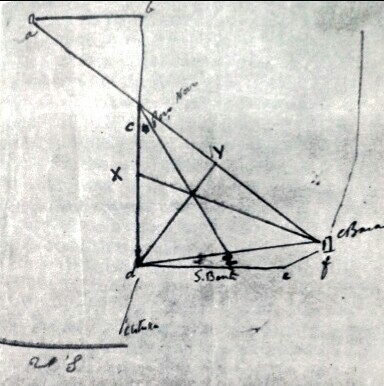
Fernando Pessoa, poeta portoghese miope, studiava il percorso più lungo possibile per accompagnare a casa la fidanzata. A margine annotò: “strategia”
"I remember people’s auras almost better than their faces."
- T.S. Eliot, from Poems & Plays: 1909 - 1950; “The Family Reunion,”
(via violentwavesofemotion)
"Hey—I’m sorry, I probably don’t like life as much as you do."
- Kurt Vonnegut, from a letter to Gail Godwin written c. February 1973 (via violentwavesofemotion)
doppisensi: “Mi sono moltiplicato per sentirmi, per sentirmi ho dovuto sentir tutto, sono...
“Mi sono moltiplicato per sentirmi, per sentirmi ho dovuto sentir tutto, sono straripato, non ho fatto altro che traboccarmi, mi sono spogliato, mi sono dato, e in ogni angolo della mia anima c'è un altare a un dio differente.”— Fernando Pessoa, Poesie di Álvaro de Campos, da “Passaggio delle ore- Ode sensazionista” (via ermione13)
grandrieux: Paris in the 1920s. Études sur Paris (André...
martedì 27 novembre 2018
"Ascoltavo la pioggia domandare al silenzio quanti nastri di strade annodavano il cuore."
domandare al silenzio
quanti nastri di strade
annodavano il cuore.”
- Alda Merini
(via perpassareiltempo)
Who? What? Clearing up Ambiguity in Your Story
Note: This is a sneak peak from my forthcoming book The Complete Guide to Self-Editing for Fiction Writers.
This section comes from the sentence-level section, but the guide covers story-level, scene-level, and sentence-level editing. If you want to be notified when the book comes out, follow the link above to get added to the book release updates list.
Clearing Up Ambiguity During Your Sentence-Level Edit
Most of the confusing or ambiguous parts of your plot should get cleared up during the story- and scene-level edit of your book. But ambiguity sneaks into stories on the sentence-level, too.
In your sentence-level edit, you’ll want to check for ambiguous words, pronouns, language, and/or phrasing—anything that creates unintentional confusion for your reader.
Ambiguous Pronouns
Anytime you use it, its, this, that, he, she, him, her, his, hers, they, theirs, etc. make sure it’s crystal clear who or what you’re referring to.
Karen took the garlic, carrots, and lemon juice out of the fridge, but according to the recipe it wasn’t enough.
What wasn’t enough? The garlic? Carrots? Lemon juice? All three? To clarify, keep in mind that a pronoun refers to the last named person (for he, she, they) or object (for it, this, that). So in the sentence:
Karen and Diane unpacked her groceries into the fridge.
“Her” would refer to Diane, the last named female person. If those are Karen’s groceries, you’d need to write:
Karen and Diane unpacked Karen’s groceries into the fridge.
It may seem like a minor concern, but ambiguous pronouns can cause serious confusion for the reader, especially if you’re trying to show an important event.
Before:
Lars threw the vase at the window, and it broke.After:
The vase broke when Lars threw it at the window.In the first example, we can’t tell what broke. Was it the vase? The window? The revision, though not exactly poetic, is more clear.
Keep in mind that you can rewrite or reorganize whole passages to remove ambiguity, reworking the problem area until it adheres to your unique style and purposes. These are just examples to guide you, not instructions on how exactly to reword your sentences.
Common Ambiguous Pronouns:
• It
• Its
• This
• That
• Those
• These
• He
• She
• Him
• Her
• His
• Hers
• They
• TheirsAmbiguous Words
Unless the character is truly uncertain, or you want the reader to be uncertain what you’re referring to, avoid using ambiguous words like “something,” “somewhere,” “thing,” “stuff,” etc.
Before:
There was something about him she despised.After:
She despised his beached-blonde hair, and his arrogance.Be specific! If your character really doesn’t know what she hates about this person, “something” could work. But make sure you’re not being vague out of habit or laziness.
Before:
She picked up her stuff from the dry cleaners.After:
She picked up her suit from the dry cleaners.“Suit” is a better choice here because it’s specific, concrete, and visualize-able. We can’t really get a mental picture of “stuff.”
Common Ambiguous Words:
• Thing
• Something
• Anything
• Somewhere
• Stuff
• NothingWhen Ambiguity Works
Ambiguity has its place if your character is truly uncertain or if you want the reader to be uncertain.
In Jeanette Winterson’s The Passion, the main character is never named or gendered. This was an intentional choice by the writer, who wanted the reader to be unclear about the narrator’s gender and sexual identity.
Similarly, writers of horror, mystery, or magical realism who are trying to create a mysterious mood will use words like “might,” “could,” and “possibly” to intentionally invoke ambiguity:
The fog drifted through the trees, almost corporeal in its movements. Could it be ghost? An apparition?
In this dream sequence from Little Kingdoms, Steven Millhauser uses ambiguous language to emphasize the main character’s uncanny experience:
“You see,” he said to Max, who for some reason had climbed the desk and then onto the top of the door frame, where he sat crouched like a gnome as dark wings grew from his shoulders; and opening his eyes Franklin could not understand the bright dawn light pouring through the window in his bedroom, while somewhere far away a cup was rattling on a dish.
When used intentionally, ambiguity can enhance mood, raise questions, and contribute to suspense. Just make sure you’re doing it on purpose!
Note: This post is a sneak peak from my forthcoming book The Complete Guide to Self-Editing for Fiction Writers. If you want to be notified when the book comes out, follow the link above to get added to the book release updates list. :)
//////////////
The Literary Architect is a writing advice blog run by me, Bucket Siler. For more writing help, check out my Free Resource Library, peruse my post guide, or hire me to edit your novel or short story. xoxo
huariqueje: Certain days, Certain hours (bedroom) - Erik...

Certain days, Certain hours (bedroom) - Erik Mattijssen
Dutch,b.1957-
Gouache and pastel on paper,196 x 256 cm
Rechtbank Collection, Amsterdam
lunedì 26 novembre 2018
abi-mson: Birds Of Passage" : © Delphine Devos (Belgium)
domenica 25 novembre 2018
"Everything I’ve ever let go of has claw marks on it."
"I want to change my place in the world entirely, which actually means that I want to go to another..."
- Franz Kafka, from a diary entry wr. c. January 1917 featured in “Diaries,”
(via violentwavesofemotion)
"I write because I have nothing else to do in the world: I was left over and there is no place for me..."
- Clarice Lispector, The Hour of the Star (via quotespile)
"As for the beauty of women, it is like the light on the sea,"
- Virginia Woolf, from The Complete Works; “Jacob’s Room,” wr. c. 1922
(via violentwavesofemotion)
art-mysecondname: The colour blue - that is my colour - means you have left the drabness of...
The colour blue - that is my colour - means you have left the drabness of day-to-day reality to be transported into - not a world of fantasy, it’s not a world of fantasy - but a world of freedom where you can say what you like and what you don’t like.
Louise Bourgeois
sabato 24 novembre 2018
Explore — A Velocity of Being: Letters to a Young Reader – a…Spiegare perché leggiamo nella...
Explore — A Velocity of Being: Letters to a Young Reader – a…
Spiegare perché leggiamo nella maniera più semplice possibile, non è affascinante?
domenica 11 novembre 2018
"E’ inutile, nei giorni di pioggia, ci si perde nel vuoto dei propri pensieri e i ricordi del passato..."
- Banana Yoshimoto
(via perpassareiltempo)
sabato 10 novembre 2018
ebonetnoir:I visited the Morgan Library and Museum yesterday....



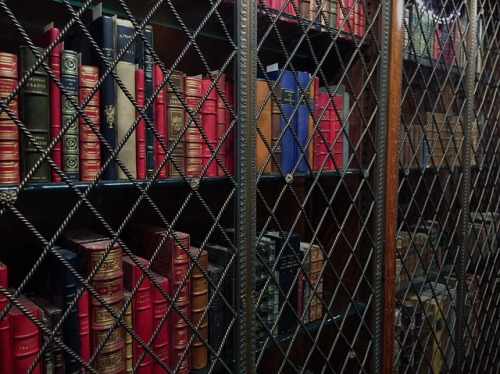
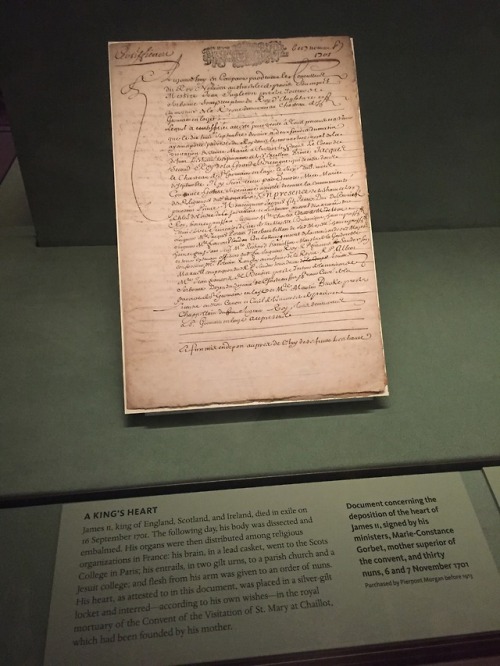
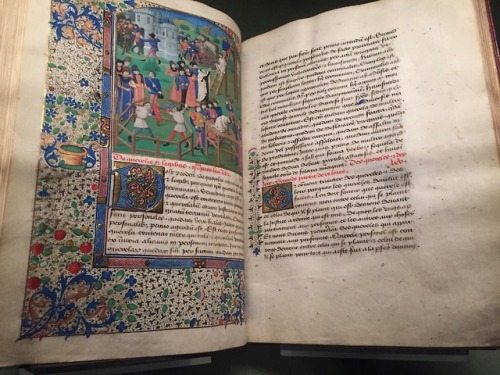
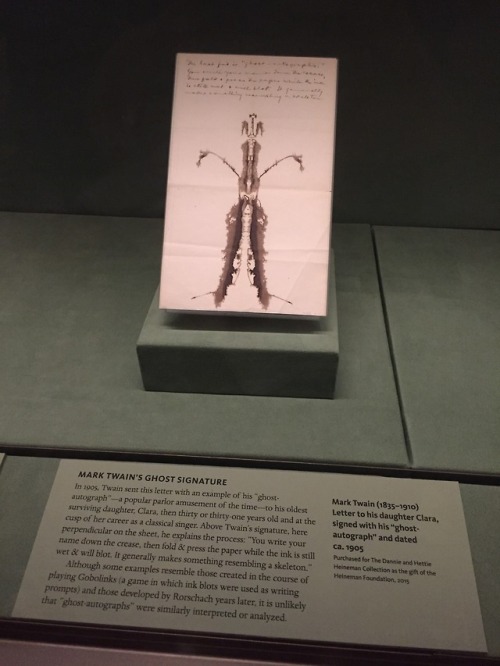
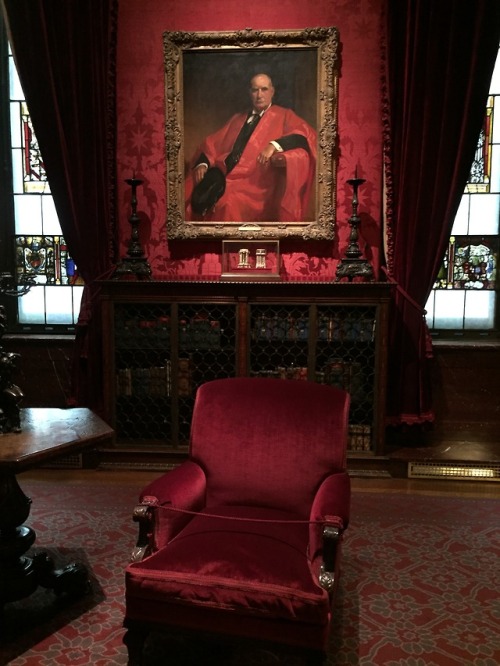
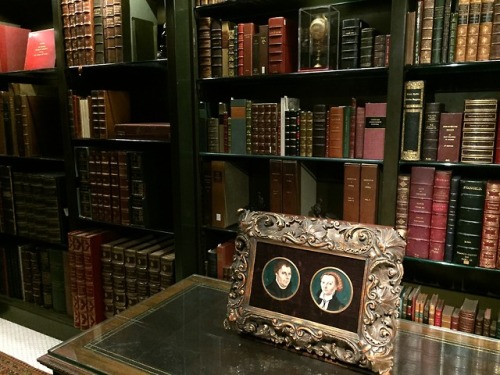
I visited the Morgan Library and Museum yesterday. What a fabulous place! A book lover’s dream.
"Buy hardcover copy of “Infinite Jest” at brick-and-mortar bookstore. Touch paper and feel connected..."
Buy hardcover copy of “Infinite Jest” at brick-and-mortar bookstore. Touch paper and feel connected to hundreds of years of printed language. Flash cashier knowing, learned smile. Commend self for protecting bookstores from onslaught of crass digital commercialism.
Walk home and experience heft of text as bag handles dig into palm. Embrace heaviness as evidence of import. Thumb nose at pedestrians who aren’t carrying impressive, heavy books. Feel smug.
Brush up on book on Wikipedia to corroborate thin claim of readership. Begin reading Wikipedia entry multiple times, but repeatedly get distracted by need to research use of CBD oil for dog anxiety.
- How To Read “Infinite Jest” (via newyorker)
"I was supposed to be having the time of my life."
iosonorockmaballoiltango: L'unica gioia al mondo è cominciare. È bello vivere perché vivere è...
L'unica gioia al mondo è cominciare. È bello vivere
perché vivere è cominciare, sempre, ad ogni istante.
Cesare Pavese
"Le uniche due volte che Evaristo Carriego si ricordò del tango, fu solo per vederci della felicità."
- Jorge Luis Borges (via falpao)
zdmotion: CURTAIN Any window, its importance appearswhen it does...
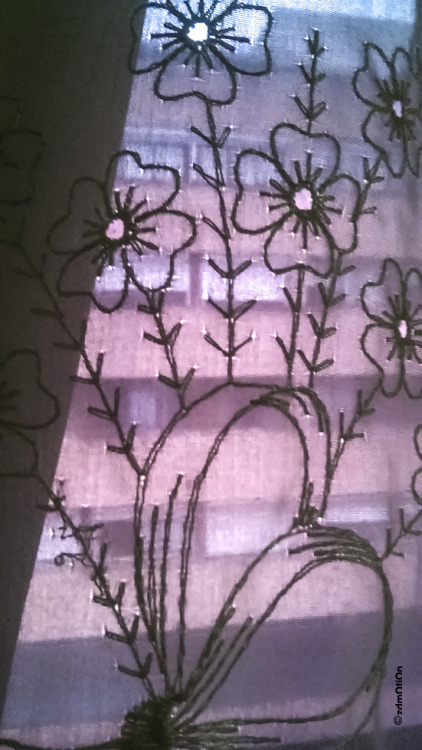
CURTAIN
Any window,
its importance appears
when it does not exist.
Without it only
the darkness.
Clarity is required
Light is health is life.~zd
PhotoChallenge2018 - Week 45: Window
Thank you RK - photochallenge2018
Lovely @zdmotion ! Almost abstract…beautiful composition with subtle colors.
- RK
zdspOtted the other zdmOtiOn blog
zdspOtted a new look on the photography
zdspOtted experimental photography.blog
venerdì 9 novembre 2018
vladimir-nabokov-official: vagabondbohemia: A manuscript page...
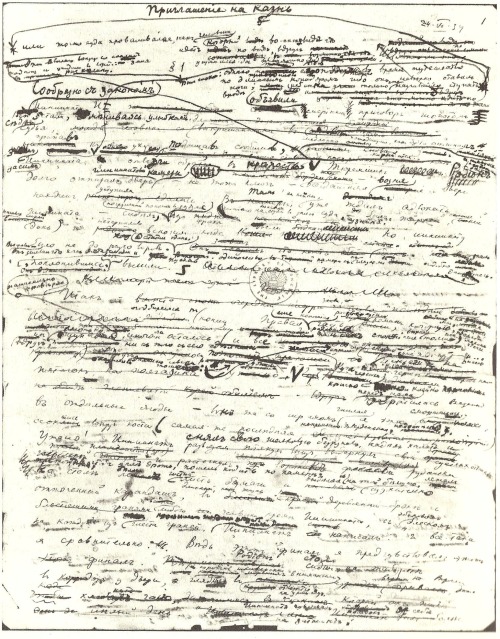
A manuscript page of Invitation to a Beheading by Vladimir Nabokov
also the masterpiece that took nabokov a mere 2 weeks to write!
"Fairy tales do not tell children the dragons exist. Children already know that dragons exist. Fairy..."
- G.K. Chesterton (via quotemadness)
iosonorockmaballoiltango: Di molte emozioni posso essere orgoglioso, ma ce n'è una in particolare...
Di molte emozioni posso essere orgoglioso, ma ce n'è una in particolare per cui vado fiero. Si tratta delle cicatrici che ho nel cuore. Le ho colorate così bene che adesso sembrano un arcobaleno.
Orazio
"Why is it that human beings are so terribly pathetic?"
- Virginia Woolf, from a letter to Lytton Strachey written c. March 1921 (via violentwavesofemotion)
bookaddict24-7: The Strand: a beauty worth visiting.
giovedì 8 novembre 2018
teddyboysinclair: Old Books and TeddyBoy Two old books are...
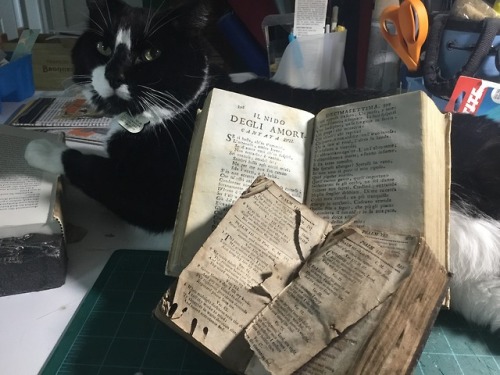
Old Books and TeddyBoy
Two old books are resting against TeddyBoy’s side. The book with the whiter pages is Italian…published in 1764 in Venice and contains the libretto (words) of Italian poet, Pietro Metastasio, who mostly wrote operas. This guy rocked…he wrote the words to 800 operas including the words to an opera by Handel. The copy I have is a 12th printing. Opera back then was the equivalent of rock n roll today.
The other book is a publication of the Psalms, published in 1815 in Haverhill, Massachusetts.
As you can see the pages in the Psalms book are disintegrating. They’re very brown, fragile, ripping easily, and have worm holes because the paper was made out of wood pulp. Wood pulp paper disintegrates. Although a great step forward in getting loads of paper made quickly, it was a huge step backward in the quality of paper.
The Italian book’s pages were made out of old linen and rags; and bleached in fields under the bright sunlight. The paper is in great condition even though it is about 250 years old.
http://www.judyfolkenberg.com/ (my clueless care taker’s book arts website)
viola-and-chill: cair–paravel: Hereford Cathedral Library. The...


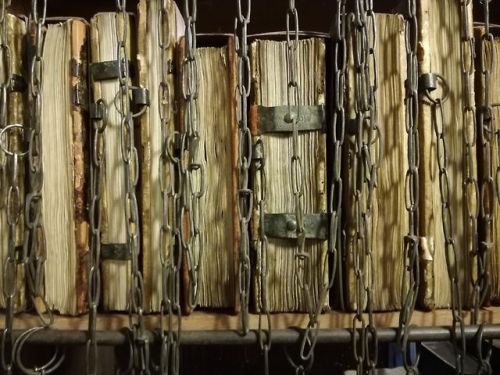
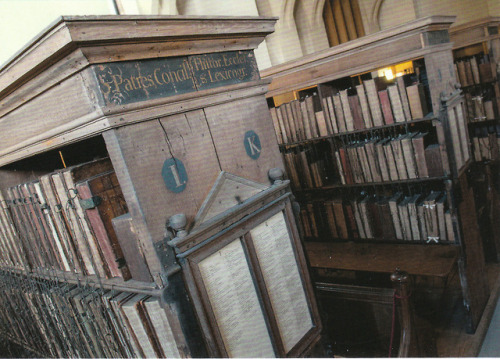



Hereford Cathedral Library. The library was formally established in 1611, but the cathedral’s manuscript collection dates back to the medieval era. It is still a working library, and is notable for its collection of chained books (a common practice in the early modern era), and is the only library of this type to survive with all of the chains, rods and locks still intact. The chained library contains 229 manuscripts, mostly medieval, and the earliest book in the collection, the Hereford Gospels, is from around 780.
love me a chained library
